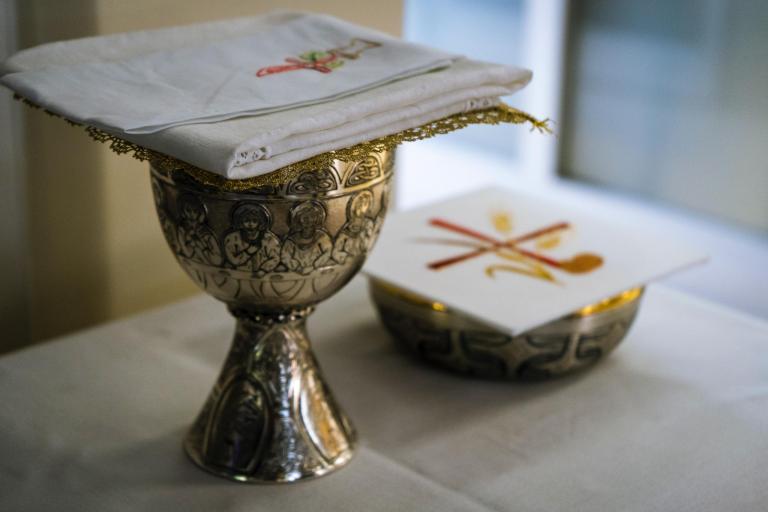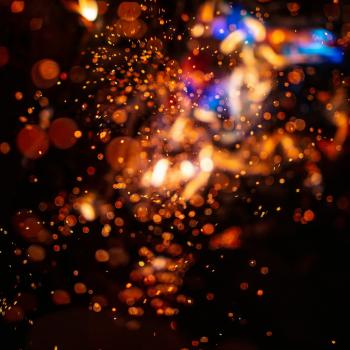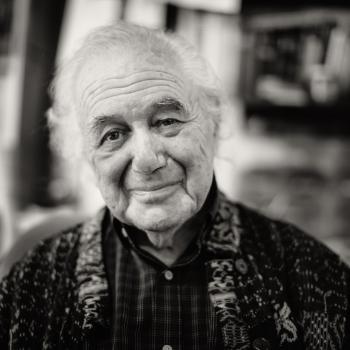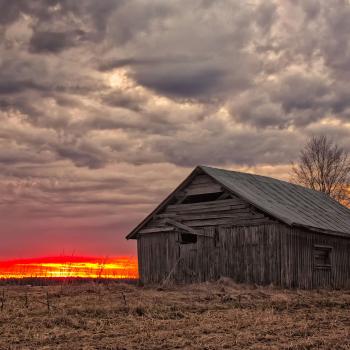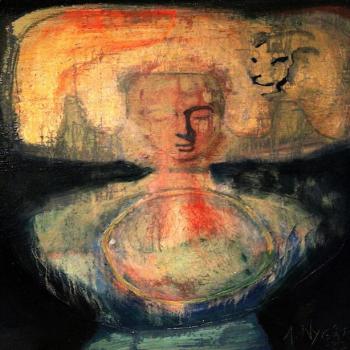The early Christian church was not the church you and I know today. It was a great deal stranger.
After the death of Jesus, Christianity went underground for the first 300-plus years of its existence. Its adherents began meeting in secret gatherings in “house churches” and underground chambers. There was no church leader, few knew of St. Paul. There was no holy book, the New Testament did not yet exist. But there were sacraments, one that included the promise of meeting God through a psychedelic Eucharist.
In the well-researched book The Immortality Key, The Secret History of the Religion with No Name, Brian C. Muraresku presents evidence that about 2,000 years ago, the first generations of Christians used bread and wine in a communion-type sacrament, much like today. Only they were infused with psychedelic plants and fungi. In the author’s words:
It was normal practice for the early adherents of Christianity to meet secretly in small groups to eat the bread and drink the wine of Holy Communion, and afterward to experience powerful and deeply meaningful beatific visions.
The idea of using a psychedelic wine to find the divine was not original to the Christians. It was co-opted from the ancient Greeks. In the centuries before Jesus, spiritual pilgrims celebrated the Greek God Dionysus much the same way. They partook in a ceremony that involved drinking spiked wine to “remove inhibitions and social constraints, liberating the individual to return to a natural state.” It was an attempt to not just honor Dionysus, but to “become one with him.”
By tapping into an existing ritual and using “the magic wine,” Muraresku speculates that “the same people who were attracted to the cult of Dionysus were attracted to Jesus.” The name of the deity changed, but the sacraments remained the same.
Why spiked wine? Were the early Christians looking for a buzz?
The purpose of drinking the psychedelic wine was not to merely become intoxicated. It was to achieve a state of mind that led to a direct experiential communion with God. For these early Christians, “to know one’s self at the deepest level is to know God” and by drinking this wine they “became identified with God himself” and could actually “become one with Jesus.” Much like earlier true believers became one with Dionysus.
The idea of looking within to find God was found in early Gnostic texts like The Gospel of Mary Magdalene. Several of these texts make clear that Jesus did not intend for us to idolize him as an external God, but wanted us to realize “the divine spark that lives in us” and “experience that divinity here and now.” The Gnostics believed that this “state of transformed consciousness” helped them “gain personal entry to the Kingdom of Heaven.” It was a heaven that was not in the skies but was all around them, right here on earth.
There was just one problem. As Elaine Pagels points out, these rituals, which included secret meetings and magical sacraments, “did not lead to mass religion.” If the psychedelic wine was the secret to finding the spirit of Jesus and even God himself, and it could be created by any layperson with the knowledge of how to make it, what was the need for the church?
Big brother steps in, aka the early Roman Catholic church.
Interestingly, the evidence shows that more often than not, these early Christian ceremonies were led by women, with men playing a secondary role. This lasted until the rise of Roman Catholicism in second half of the 4th century, when a religion dominated by men took steps to marginalize the women in the church. They also removed the psychedelic elements from the sacrament, “reducing Holy Communion to an empty symbolic act, devoid of its powerful experiential content.”
By the year 400 AD, Muraresku reports that the leaders of the new and increasingly powerful church, not only banned the Gnostic texts, they eliminated what were deemed “pagan temples, shrines and religious sites” in many cases burning them to the ground. What also were banned were many Christian sects “that thrived in the second and third centuries AD, condemned as heretical and erased from the history of the faith.”
Church rule became centralized and instead of “personal responsibility for one’s spiritual development, it was placed in the hands of the priest.” Muraresku calls Roman Catholicism “the longest-running old boys club in Western Civilization. Blood brothers. Sworn together as God’s bouncers, until the end of time. They have had a 2,000 year run.” But could change be in the air?
Today, psychedelics are making a comeback—and there’s a spiritual element to it.
I probably don’t have to tell you that religion has a popularity problem. Muraresku reminds us that today “40% of millennials don’t identify with any faith whatsoever.” It’s a figure that has doubled over the past 20 years. I believe Muraresku is correct in his conjecture that “it may be because millennials cannot find God in a church or a holy book. The only true way to know God is to experience God.”
On a separate track, prestigious medical institutions like Johns Hopkins have been studying the positive effects of psychedelics. Participants have described the effect of drugs like psilocybin as one of the single most meaningful experiences of their entire lives. They use language like “being at one with the universe,” “melting away the barriers,” and “birth and death actually don’t have any meaning, it’s all a state of always being.”
As Muraresku points out, these days, no one tastes the Eucharist and sees God. But could it be that this small group of early Christians, “huddled together in the house churches and catacombs of the ancient Mediterranean” was on to something? Through visionary drugs, might they have experienced a direct and personal relationship with God? The author sees them as “not so different from the spiritual-but-not-religious of today, seekers on the hunt for transcendence, a real experience with real meaning.”
Carl Jung once suggested that the problem with Christianity is that “it does not connect with the soul or transform people anymore.” Christianity has not changed, but as the years have passed, people have. Jung may have been correct when he opined that people needed “an actual inner, transcendent experience to anchor them to God.” Might psychedelics actually provide that anchor or spark? And if yes, where does the church fit in?


